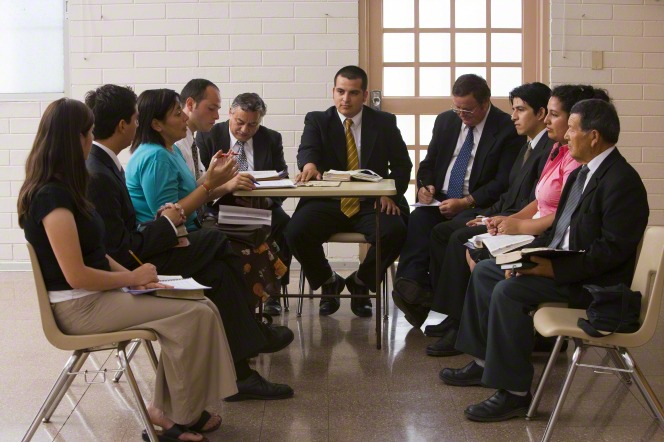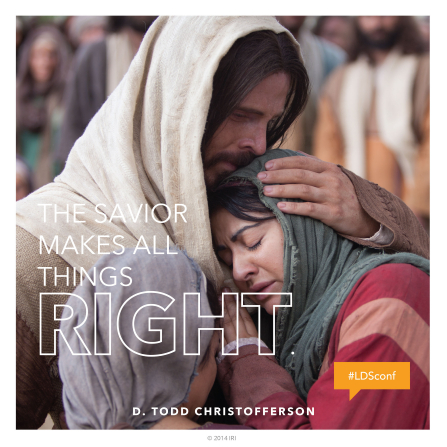3
Nephi 3:17

Counsel
with Councils
What
17 And
it came to pass that Lachoneus did appoint chief captains over all
the armies of the Nephites, to command them at the time that the
robbers should come down out of the wilderness against them.
Why,
because
they would need to be organized to be effective in their battle.
Lachoneus could not do it all alone by himself. Also they did not
plan an attack but they would defend themselves.
Pattern
Exodus
18 (Jethro to Moses)
19 Hearken
now unto my voice, I will give thee counsel, and God shall be with
thee: aBe thou
for the people to bGod-ward,
that thou mayest bring the causes unto God:
20 And
thou shalt ateach them bordinances and claws,
and shalt shew them the dway wherein
they must ewalk,
and the work that they must do.
21 Moreover
thou shalt provide out of all the people aable men,
such as bfear God, cmen
of truth,
hating dcovetousness;
and place such over
them, to
be erulers of
thousands, and rulers
of fhundreds,
rulers of fifties, and rulers of tens:
22 And
let them ajudge the
people at all seasons: and it shall be, that every
great matter they shall bring unto thee, but every small matter they
shall judge: so shall it be easier for thyself, and they shall
bear the bburden with
thee.
23 If
thou shalt do this thing, and God command thee so, then
thou shalt be able to endure, and all this people shall also go to
their place in peace.
Psalms 82:3
3 Defend the
poor and fatherless: do justice to the afflicted and needy.
Alma 43:47
47
And again, the Lord has said that: Ye shall defend your
families even unto bloodshed. Therefore for this cause were the
Nephites contending with the Lamanites, to defend
themselves,
and their families, and their lands, their country, and their rights,
and their religion
Helaman 4:7
7
And there they did fortify against the Lamanites, from the west sea,
even unto the east; it being a day’s journey for a Nephite, on the
line which they had fortified and stationed their armies
to defendtheir north
country.
Alma 48:14
14
Now the Nephites were taught to defend
themselves against their enemies, even to the shedding of
blood if it were necessary; yea, and they were also taught never to
give an offense, yea, and never to raise the sword except it were
against an enemy, except it were to preserve their lives.
D&C 109:8
- Doctrine and Covenants
Organize yourselves;
prepare every needful thing, and establish a house, even a house of
prayer, a house of fasting, a house of faith, a house of learning, a
house of glory, a house of order, a house of God;
D&C 44:4
- Doctrine and Covenants
And
many shall be converted, insomuch that ye shall obtain power
to organize yourselves according to the laws of
man;
D&C 102:24
- Doctrine and Covenants
The
high priests, when abroad, have power to call and organize a
council after the manner of the foregoing, to settle difficulties,
when the parties or either of them shall request it.
D&C 104:11
- Doctrine and Covenants
It
is wisdom in me; therefore, a commandment I give unto you, that ye
shall organize yourselves and appoint every man his
stewardship;
Christ
Create, Creation
- The Guide to the Scriptures
To organize.
God, working through his Son, Jesus Christ, organized the
elements in nature to form the earth. Heavenly Father and Jesus
created man in their image (Moses 2:26–27).
D&C 88:74
- Doctrine and Covenants
And
I give unto you, who are the first laborers in this last kingdom, a
commandment that you assemble yourselves together,
and organize yourselves, and prepare yourselves, and
sanctify yourselves; yea, purify your hearts, and cleanse your hands
and your feet before me, that I may make you clean;
Conference
- President N. Eldon Tanner wrote: “A leader should never try to do the work of one to whom he has made an assignment. … Give them freedom to do their tasks. Never criticize them, but praise success and encourage efforts. … We as leaders … should give the utmost attention to the personal growth of each individual through teaching correct principles and try to lead that individual to prepare himself for immortality and eternal life. This we should do by example and precept and then be prepared to help and support him in his efforts, but we should let him make his own decisions and govern himself according to the free agency that is his gift” (“Leading As the Savior Led,” New Era, June 1977, 6). •
- •Matthew 25:14–30 (stewards entrusted with and held accountable for talents)
- •Luke 16:10–13 (faithfulness in earthly stewardships)
- •Luke 19:11–27 (stewards to be good managers)
- •Doctrine and Covenants 59:16–21 (all things made for the prudent use of man)
- •Doctrine and Covenants 70:4 (accountability at the Day of Judgment)
Psalm
24:1 (all
things belong to the Lord)
Conference
M.
Russell Ballard Of
the Quorum of the Twelve Apostles
Once
the appropriate councils are organized and the brethren and the
sisters have full opportunity to contribute, ward and stake leaders
can move beyond just maintaining organizations. They can focus their
efforts on finding ways to make their world a better place to live.
Certainly ward councils can consider such subjects as gang violence,
child safety, urban blight, or community cleanup campaigns. Bishops
could ask ward councils, “How can we make a difference in our
community?” Such broad thinking and participation in community
improvement are the right things for Latter-day Saints to do.
“Come
now,” said the Lord in an earlier dispensation through the prophet
Isaiah, “and let us reason together” (Isa.
1:18).
And in this dispensation, He repeated that admonition: “Let us
reason together, that ye may understand” (D&C
50:10).
Let
us remember that the basic council of the Church is the family
council. Fathers and mothers should apply diligently the principles I
have discussed in their relationships with each other and with their
children. In doing so, our homes can become a heaven on earth.
Apply
(from
above talk by Elder Ballard)
Brothers
and sisters, let us work together as never before in our stewardships
to find ways to make more effective use of the wondrous power of
councils. I ask you to consider all that I said on this subject last
October with what I have said today. I testify that we can bring the
full force of God’s revealed plan for gospel governance into our
ministries as we counsel together. May God bless us to stand united
as we strengthen the Church and our members, I pray in the name of
Jesus Christ, amen.
Music
Hymns
Children

